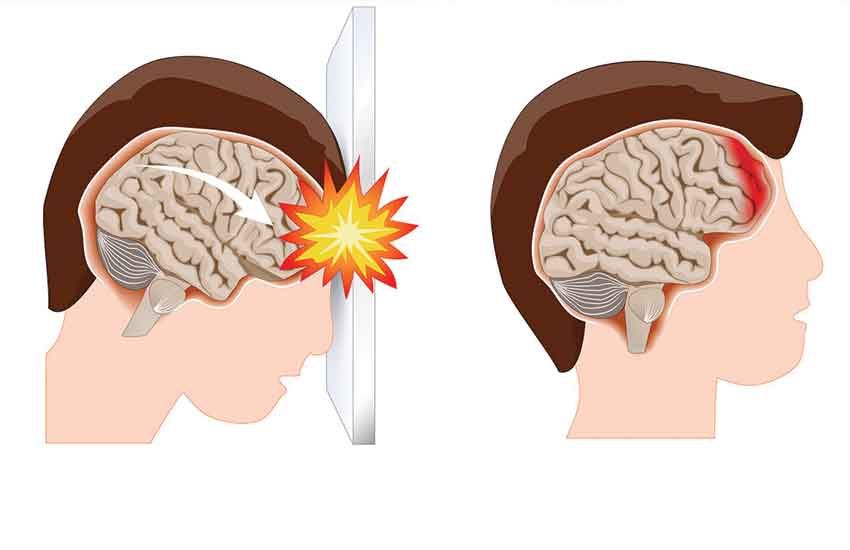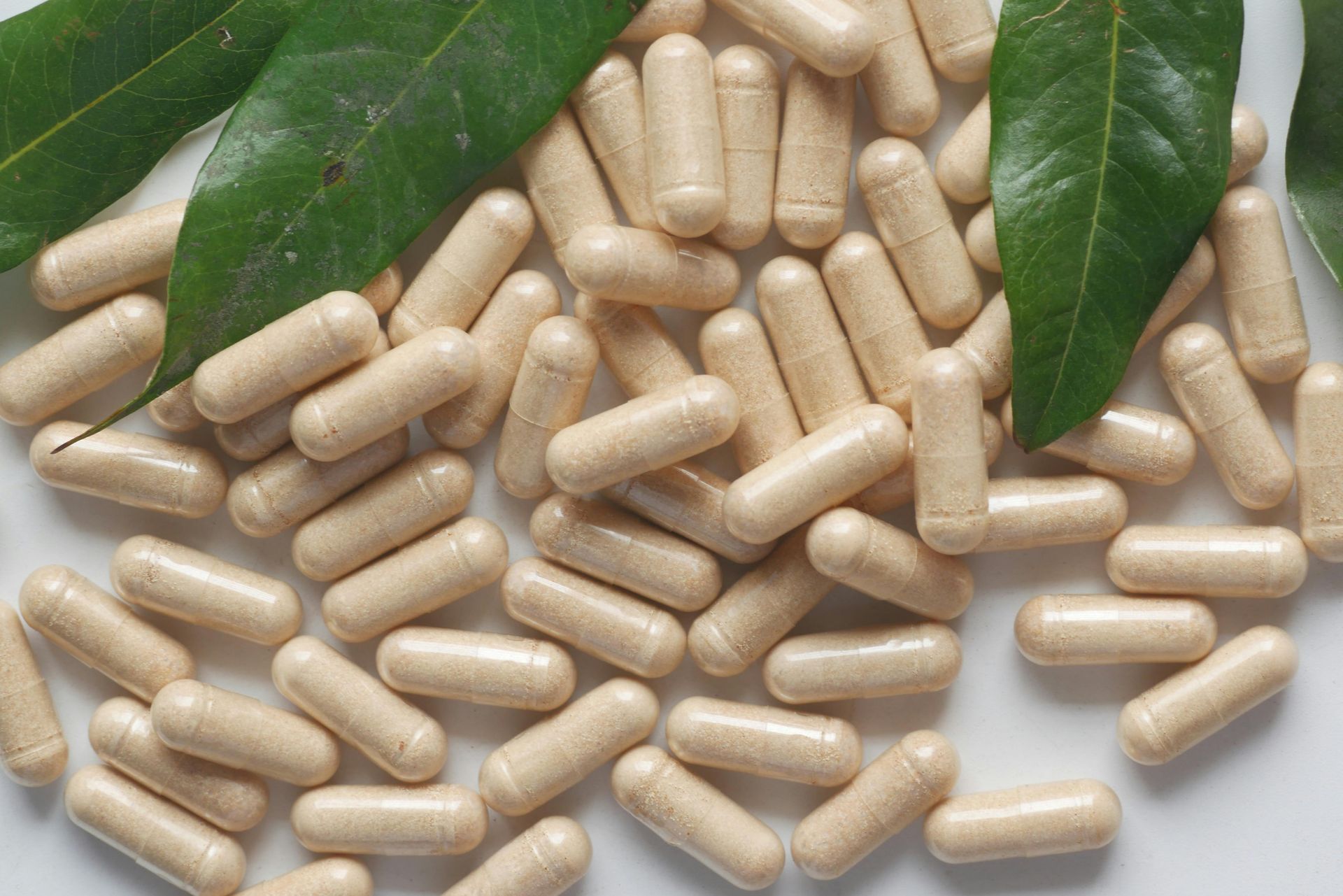Sleep, Mental Health, & Brain Health

These suggestions are not intended to replace appropriate professional advice. Please check labels and consult your pharmacist if you take prescription medications. Diet Drink 8-10 room temperature glasses of filtered or spring water. Avoid chlorinated water. Organic foods are the safest way to nourish yourself – a good investment! Consume a diet that is 75-80% alkaline forming. Very important. Rely on fresh fruits and vegetables, raw nuts and seeds, bean and legumes, and whole grains as the mainstays of your diet. Avoid wheat unless sprouted. Combine foods for optimum digestion: fruits on an empty stomach 30 minutes before other foods – starches and animal products digest in very different gastric secretions and should not be eaten at the same meal. Animal products are a source of inflammatory arachidonic acid. Consume sparingly. Kimchi, sauerkraut and coconut kefir balance pH and improve mood. Have complete protein no later than lunch for better assimilation of amino acids. Use 2-3 tbsp of flax, hemp, or chia seeds for fiber and omega 3 fatty acids. Cook gently. High heat generates acrylamides & advanced glycation end products. Avoid mucous forming foods like as dairy and refined sugar. Supplements Bio-Strath improves assimilation of nutrients, enhances mental focus, and speeds healing. Double up on omega 3 fatty acids for one month. Studies show that they significantly shorten recovery time after a head injury. Vitamin D – 8,000 IU for one month the reduce to the upper limit of 4,000 IU - decreases inflammation and prevents depression. Serrapeptase – once a day on an empty stomach - digests excess fibrin in scar tissue. Astaxanthin – 12 mg for 2-3 months - protects and stabilizes brain cells. Probiotics - help control inflammation and hormone production. More Concussion Care Homeopathic Arnica speeds healing and reduces pain and swelling. Unless bedridden, get some exercise each day, preferably outdoors. The brain needs oxygen rich blood to heal and function properly. Breathe deeply, exhale thoroughly! Holy Basil (Tulsi) tea can provide mental clarity and calm. Apply drops of Frankincense essential oil (diluted with a carrier oil) to the base of the skull, temples, and forehead to promote recovery. Customers who followed these suggestions have reported an improvement of symptoms within a few days and a full recovery in 1 – 3 months. Track your progress. *Revised September 2024

These suggestions are not intended to replace appropriate medical advice. Please check product labels and consult your pharmacist if you take medication. Make changes slowly. You can systematically bring about positive changes. Good health by design! Diet Drink 7-10 glasses of filtered or spring water. Avoid chlorinated water. Consume a diet that is 75-80% alkaline forming . Very important. Go organic . Pesticides are linked to both dementia and Alzheimer's disease. Make antioxidant rich fruits, vegetables, raw seeds and nuts, beans, legumes, and whole grains the mainstays of your diet. Avoid wheat unless it’s sprouted. Have complete protein no later than lunch for better digestion of amino acids. Beets and beet juice can decrease the accumulation of amyloid plaque, a factor in the development of Alzheimer’s disease. Consume fermented foods on a regular basis to maintain a healthy pH level. Replace salt with Herbamare for all the flavour but 1/3 the sodium. Avoid alcohol, artificial sweeteners, refined sugar, processed food, and trans-fats. Cook gently. High heat generates acrylamides & advanced glycation end products. Basic Supplements Bio-Strath – several studies at hospitals in Germany confirm that Bio-Strath improves assimilation of nutrients and cognitive function in convalescence. An Oxford study found B components naturally occurring in Bio-Strath increased brain function, reduced brain atrophy, and shrinkage. Vitamin C – 500 – 1,000 mg daily – antioxidant, protects the brain. Omega 3 fatty acid – helps reduce plaque, enhances cognitive function. Vitamin D – 8,000 IU for one month then reduce to upper limit of 4,000 IU daily – anti-inflammatory, prevents depression. Magnesium - improves multiple aspects of memory and learning. Probiotics – intermittent use – there is a connection between gut and brain health. Special Care Astaxanthin – 4-8 mg daily – powerful antioxidant protection for the brain. If you have a history of head injury or concussion, take serrapeptase once a day on an empty stomach for 3-6 months to eliminate possible excess scar tissue. Holy Basil tea – promotes mental clarity, lowers cortisol. Lifestyle/Special Treatments Breathe deeply. Exhale thoroughly . The brain has a higher metabolism then most other body systems meaning it needs more oxygen and efficient elimination of gases. Spend time outdoors in the fresh air. Our body and brain thrive in nature. Exercise to increase oxygenated blood supply to the brain. See the 4-Minute Workout by Dr Zack Bush online . Learn something new that demands both physical and mental engagement such as a new style of dance, swimming class, yoga, etc. Develop new interests. The cure for boredom is curiosity – and for curiosity there is no cure 😊 Practice scalp and dry body brushing 2-3 times weekly to improve lymphatic function. The lymphatic system drains pounds of plaque from the brain each year. Toxins from a congested system are linked to cognitive decline. Radiation emitted from cellphones may cause damage to the thyroid and brain. There is a strong connection between Alzheimer’s and thyroid health. Avoid aluminum: cookware, foil and beverage cans. Use all natural personal care, cleaning, and oral hygiene products. Frankincense has an immediate effect on the region of the brain responsible for mood and memory. Mix 2-3 drops of essential oil with a carrier such as coconut oil and apply to temples and neck and thyroid area of the throat 2X daily. Less worry, more fun. A simple natural lifestyle sets you free to enjoy everything! Healing is a dynamic process. Keep a journal and track your progress for 3-6 months then assess. Many people enjoy multiple health benefits following these suggestions. We hope you do too. *Revised February 2023

Breaking The Grip of Depression These suggestions are not intended to replace appropriate professional advice. Please check labels and consult your pharmacist if you take prescription drugs. Serious depression and feelings of hopelessness require the guidance of a qualified practitioner. Mild to moderate symptoms of depression can usually be helped through some conscious lifestyle and dietary choices. Good mental and physical health happen by design, not by chance. A Diet for Healing and Balance 7-10 glasses of room temperature filtered or spring water. Consume a diet that is 75-80% alkaline forming. A chart is available. Acidity makes you more vulnerable to depression. Consider urine testing to monitor pH. Organic foods are the safest way to nourish yourself – a wise investment! Make fresh fruits, vegetables, raw seeds and nuts, bean, legumes, and whole grains diet mainstays. Avoid wheat unless sprouted. Combine foods for optimum digestion: fruit on an empty stomach 30 minutes before other foods – starches and animal products require very different gastric secretions and should not be eaten at the same meal. Eat complete protein no later than lunch for better digestion of amino acids. Fermented foods improve mood and balance pH. Have 1-3 tbsp ground flax, hemp or chia seeds for fatty acids and hormone balance. 1-2 cups of black coffee can increase serotonin and dopamine levels. Basic Supplement Regimen – to prevent common deficiencies Bio-Strath provides all B complex vitamins, minerals, & antioxidants – reduces stress and fatigue, improves digestion, corrects pH. Vitamin C – anti-inflammatory, reduces anxiety and fatigue. Vitamin D – 8,000 IU for one month then reduce to upper limit of 4,000 IU - anti-inflammatory, a deficiency is associated with depression. Magnesium – an alkaline mineral that promotes overall balance. Omega 3 fatty acids – necessary for healthy brain function. Probiotics – intermittent use to promote proper pH, digestion, immune function. Special Care for Depression – Try one or a combination to see what works for you St John’s Wort has been studied for its effect on mild to moderate depression. It increases serotonin levels, alleviates anxiety, decreases pain and has a beneficial effect on the lungs. Rhodiola has a long history in Europe and Russia for improving mood, increasing endurance, and alleviating symptoms of depression. Holy Basil tea is an herb known in India as the Mother of All Herbs. Holy Basil has an immediate effect of “lifting” the heaviness of depression. There are many homeopathic option for symptomatic relief i.e. Coffea is helpful when the mind is racing, Iamara is the grief remedy and can help when one feels weighed down with sadness. Ask one of our staff to help you choose an appropriate remedy. Suggestions from Others Who Have Travelled This Path The importance of sunshine, fresh air and exercise cannot be overstated. The Earth is continuously emitting a negatively charged field that’s good for our bodies and psyches. Keep all pathways of elimination open. Dry body brush to maintain healthy skin pore and encourage lymphatic drainage. Take sufficient magnesium to keep bowels moving easily. Yoga and rhythmic breathing release tension and develop an inner steadiness. Breathe deeply, exhale thoroughly! Your thoughts and dreams foster your tomorrows. The best way to guarantee a better future is to create it! Self-help and health oriented reading can clarify your thinking and offer inspiration. Journal to honour your feelings. Time spent in self-reflection is never wasted. There are degrees of depression. Get help if you’re overwhelmed. We can recommend a Naturopath if you want that support. Remember: The best day of your life is yet to come. There are people you haven’t met yet and things you haven’t done. In some way this experience is preparing you for greater things to come. You will have a unique compassion and understanding for the suffering of others. *Revised September 2024

ADHD - Attention Deficit Disorder This information is not intended to replace appropriate professional advice. Please check labels and consult your pharmacist if you take prescription medications. Individuals with attention deficit hyperactivity disorder can face unique challenges including the struggle to fit in and be accepted. This can impact their self-esteem and overall wellbeing. The following s uggestions, introduced gradually, may be helpful. Balanced Alkaline / Acid Diet 6-10 (depending on age) glasses of filtered or spring water. Tap water contains multiple trace chemicals that can cause a sensitivity, such as chlorine which destroys healthy gut flora that can impact on mental health. Consume a diet that is 75-80% alkaline forming . The most healthful, alkalizing foods are fruits, vegetables, raw seeds and nuts. Studies link agitation, hyperactivity, and loss of concentration with over-acidity. Use mainly organic foods, especially those listed on the Environmental Working Groups dirty dozen (updated yearly). Studies find c hildren regularly exposed to pesticides in their diet are at a higher risk of developing ADHD. Modest quantities of high quality protein are important from lean meats, eggs, legumes and beans. They balance blood sugar and provide necessary building blocks for neurotransmitters. Use only whole grains and avoid wheat unless sprouted. Fermented foods improve mood and can reduce symptoms of anxiety. Avoid additives, preservatives, artificial colouring, sugar, & deep fried food. A chart is available here to help you plan a more alkalizing diet. When body chemistry is too acidic elimination of waste is impaired. Acidic material ends up stored in body tissue causing inflammation and imbalance. Supplements – Elevate Nutrition from Adequate to Optimum Bio-Strath – a fermented wholefood source of B vitamins and multiple other vital nutrients. European studies show a significant improvement in concentration after just a few weeks of use. Vitamin C – boosts immunity, protects cells, and reduces feelings of anxiety. Vitamin D – anti-inflammatory, a lack is associated with depression. Magnesium – improves sleep quality and mental health, induces relaxation. Essential fatty acids – improves cognitive function and promotes overall health. Probiotics – can significantly improve symptoms of ADHD. Special Care for Adults and Children OVER 12 These remedies may be suitable for younger children, but a natural health care practitioner should be consulted. Try one or more of the following for 1-2 months and assess their impact, then use as needed. Panax ginseng – in studies, ginseng has been shown to increase concentration, improve memory, and reduce inaccuracy. Pine bark extract (Pycnogenol) – reduces hyperactivity, improves attention, helps normalize stress hormones and dopamine levels. Glutamine – needed for production of the neurotransmitter glutamate. A deficiency is associated with ADHD. Also helpful for digestive problems. Homeopathic remedies can address specific symptoms or behaviours. Ask one of our staff to assist in choosing an appropriate remedy.

These suggestions are not intended to replace appropriate professional advice. Please check labels and consult your pharmacist if you take medications. There are various types of headaches and many different causes or triggers. It may take some experimenting with any of the following suggestions that appeal to find what works best for you. A Healing Diet Stay hydrated. Drink 7-10 glasses of room temperature filtered or spring water. Avoid chlorinated water. Consume a diet that is 75-80% alkalizing. If your system is acidic you are more likely to experience headaches. Shift up to organic. Pesticides and other chemicals can trigger headaches. Make fruits, vegetables, seeds, nuts, beans, legumes, and whole grains the mainstays of your diet. Eat wheat only if it’s sprouted. Eat complete protein no later than lunchtime for better digestion of amino acids. Fermented foods improve mental health and correct pH. Ginger tea improves circulation, relieves nausea, and reduces pain. In Traditional Chinese Medicine it is prescribed to prevent silent strokes. Cook gently. High heat generates acrylamides and advanced glycation end products. Here is a list of foods known to trigger a migraine or headache. Keep a food diary. Processed Meats Chocolate Dried Fruit Cold or Iced Drinks Aged cheese Alcohol, especially red wine MSG Fermented dairy products Pickled foods Excess coffee Bottled soft drinks Beans Basic Supplements to cover common deficiencies: Bio-Strath – improves stress tolerance, corrects pH, relieves fatigue. Vitamin D - 8,000 IU for one month then reduce to upper limit of 4,000 IU anti-inflammatory, relieves fatigue, antidepressant. Vitamin C – anti-inflammatory, reduces anxiety and fatigue. Magnesium – a common deficiency associated with migraines and headaches. Omega 3 fatty acids – *See study results below. Probiotics – correct pH, play a role in balancing mood. Special Care for Headaches – the following remedies have proven helpful. Try them on their own, or in combination. Co Enzyme Q 10 – 100 mg – studies show it can reduce migraine frequency. Feverfew has a long history of successfully relieving headache pain. Daily use may have a preventative effect. *A large 2 month study of migraine sufferers found that a combination of omega-3 fatty acids and curcumin significantly reduced the frequency, severity and duration of migraine headaches. There are homeopathic remedies that deal effectively with specific types of headaches. Columbrina is helpful for a hangover or for a headache brought on by overeating or constipation. Kali Phos is for crushing headaches, etc. Peppermint oil is applied directly to the temples to relieve pain, while lavender oil can be applied to the upper lip and inhaled to reduce symptoms. Additional Suggestions Keep all pathways of elimination clear. Dry body brush to open skin pores and encourage lymphatic drainage – take enough magnesium to keep bowels moving easily. The more circulating waste (acid) there is in your system, the more likely you are to suffer from a headache. Perform the 4-minute workout by Dr Zack Bush 2-3 times daily to keep nitric oxide levels high and vessels open. (view online) Watch your posture. Chronic slouching, inappropriate footwear, sitting for long periods of time at a computer can all contribute to headache frequency. Try a Neti Pot. Many customers and staff have eliminated headaches, reduced frequency of colds and flu, and corrected inner ear disturbances. If you have ever had a head injury you may benefit from a course of Serrapeptase . When taken on an empty stomach, this enzyme scours the body breaking down old scar tissue and other inflammatory material that can interfere with blood, oxygen, and nerve pathways. Learn to relax and let go of tension. Make your wellbeing your No.1 priority! Fresh air, sun and play are foods for Life. Breathe deeply, exhale thoroughly. Many customers have enjoyed multiple health benefits following this plan. We hope you will, too! *Revised September 2024

These suggestions are not intended to replace appropriate professional advice. Please check labels for contraindications and consult your pharmacist if you take prescription medication. Repose and sleep are necessary for good health. Like all other aspects of health, diet plays an important part in energizing the body through the day leading naturally to a peaceful sleep at night (the circadian rhythm). Check out our Wellness Wisdom video all about sleep on YouTube - featuring Lindsay Store Manager and CNP, Rebecca! A Healing Diet Drink 8-10 glasses of filtered or spring water daily. Chlorine destroys healthy gut flora and can disrupt thyroid function. Eat a diet that is 75-80% alkaline forming . Very important. Go organic. Pesticides and chemicals can cause sensitivities. Make antioxidant rich fruits and vegetables, beans and legumes, whole grains, seeds and nuts the mainstays of your diet. Vital diet = vital health. Consume 2-3 tbsp of chia, hemp, or flax seeds daily for fiber, essential fatty acids, and nutrients that promote hormonal balance. If you are a coffee or tea drinker enjoy 1-2 cups early in the day but use Holy Basil tea for a hot beverage in the evening. It promotes mental calm and is a first step toward a good night’s sleep. Eating late, overeating, or eating complicated, hard to digest meals with heavy protein will make peaceful sleep difficult. Make your last meal of the day a simple one and eat as early as possible. Supplements - Common Deficiencies that can interfere with proper sleep Bio-Strath – for nerve health, digestion, hormone balance, mental calm. (A staff fave for stress relief!) Vitamin D 8,000 IU for one month then reduce to upper limit of 4,000 IU daily – a deficiency is associated with depression and inflammation. Vitamin C – anti-inflammatory, reduces anxiety and fatigue. Magnesium – calms/balances the nerves, muscles, and cardiovascular system. Omega 3 fatty acids – hormone balance, anti-inflammatory. Probiotics – mental/emotional well-being are affected by gut flora. We recommend intermittent use for overall health. The following are special care for insomnia. Try what appeals to you for a few weeks. The ideal is to achieve a natural childlike readiness for sleep without the need for extra help. When a better sleep pattern is achieved ween off extra supplements and enjoy confidence in your ability to rest or sleep when it’s needed! Special Care for Insomnia: - Short-term or intermittent use Melatonin is a hormone produced naturally by the body. It signals the body that it’s time to rest. Any light source in your bedroom can interfere with production. Wear an eye mask if you are unable to shut out all light. Supplemental melatonin can improve sleep quality and restore the natural circadian rhythm. Tranquil Sleep by Natural Factors is one of many combinations available. It contains melatonin, 5 HTP (promotes deeper sleep), and theanine (relieves mind chatter). Valerian has a long history of use as a nervine tonic and sleep aid. In studies it shows potential for greatly increasing cell longevity. There are several homeopathic options specific to individual needs. We can help you make a selection. Additional Suggestions: Implement any of these suggestions and start enjoying more regular sleep. Learn to breathe deeply, exhale thoroughly, rest and just “be”. Develop a mantra that is meaningful to you i.e. “ I am safe and content. I rest and relax in this moment.” Practice this for one or two minutes several times a day. These are “seed” meditations that will lead to greater ease in letting go and falling asleep at bedtime. Make your bedroom a place you enjoy spending time. Plants like the snake plant (aka bedroom plant) clean the air and create a living ambiance. Diffused lavender oil has a calming effect. Family photos make a bedroom welcoming. Eliminate clutter or anything contrary to an atmosphere of peace. Wear lightweight cotton socks to bed. Studies show people sleep more soundly. Even if you're a devout no-socks-to-bed person, give it a try! Don’t keep electronic devices in your bedroom. If that isn’t possible use a power bar to shut things down and store your cell phone as far away from your bed as possible. Establish a routine (with flexibility). Avoid stimulants of any kind late in the evening including alcohol, electronics, cell phones or the nightly news. Journal before bedtime. Write down anything that’s concerning you – anything you’re likely to worry about once the light is out. Trust that you will find solutions when necessary then set them aside and relax into sleep. Reading an old favourite or inspirational work can be relaxing. Books from childhood can make comforting “bedtime stories”. Align your body with the Earth’s energy field – head to the north, feet to the south. Finally, if you don’t fall asleep don’t worry! Breathe slowly and deeply. Use your mantra. Imagine you’re a pat of butter on a slice of warm toast. Even deep rest is valuable and by accepting things as they are you are setting the stage for the inevitable ability to sleep like a baby. Sweet Dreams! *Revised August 2022



